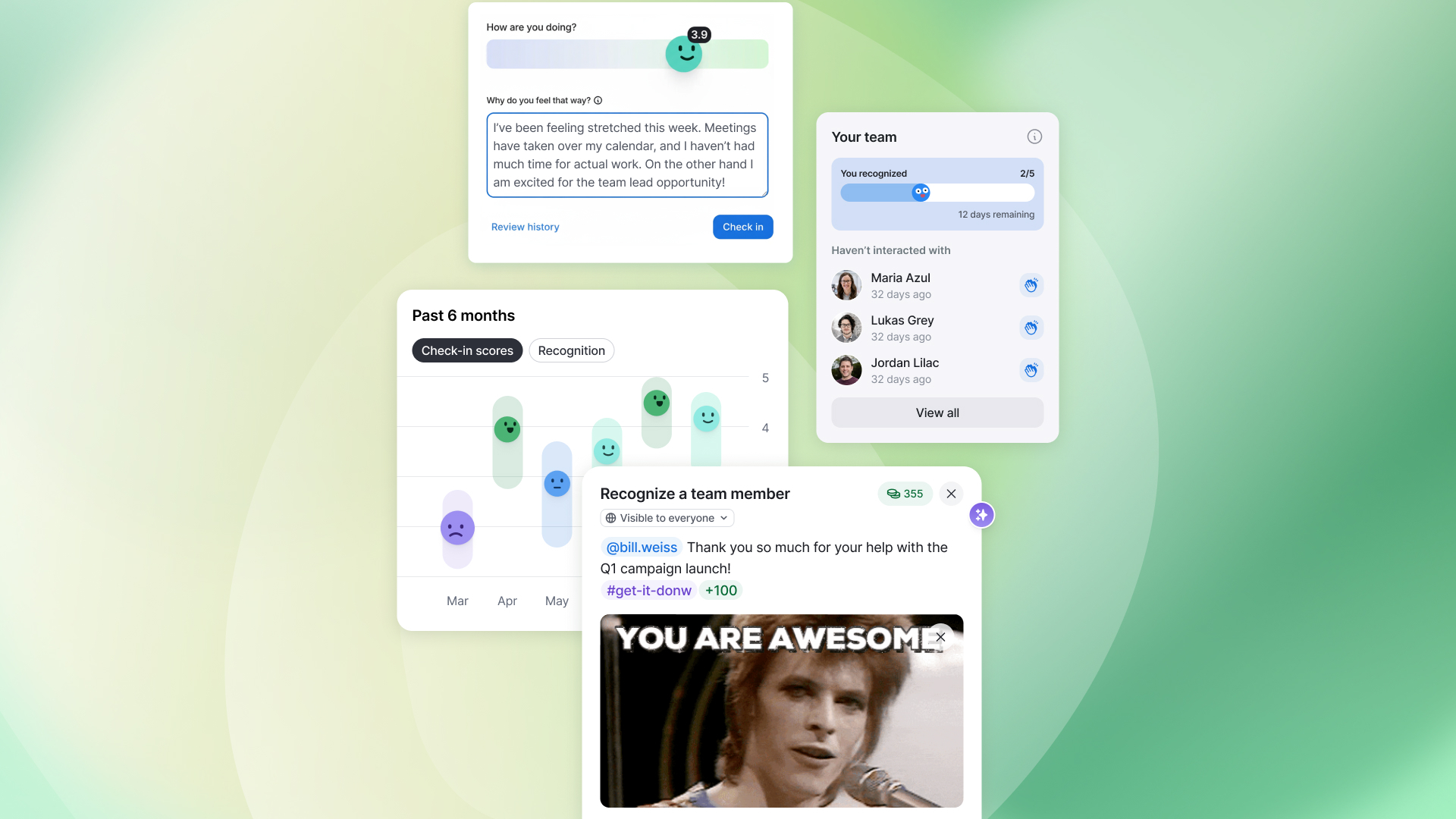You’re Doing It Wrong: Why Effective Feedback Starts with Recognition

Hey there, we have some feedback on your feedback.
Let’s start with a quick exercise. Try Googling “how to give effective feedback.” What shows up in your search results? A list of articles from academic, business, and HR publications that regurgitate the same advice: Be specific. Talk about the behavior, not the person. Ask for permission before giving it.
Those instructions aren’t necessarily wrong, but they’re incomplete. In fact, most advice about feedback skips the real problem. It’s not about how you deliver feedback—it’s about the workplace culture surrounding it.
If your team doesn’t feel celebrated or empowered, no sandwich method, clever phrasing, or perfectly timed conversation will fix that. Employees won’t even listen to the feedback, let alone learn from it and grow in their role. If employees aren’t growing, your business certainly isn’t either.
Effective feedback thrives in a company culture of trust. As performance review season rolls around, you can’t expect meaningful feedback to land unless your employees already understand the value they bring to your organization and its mission.
If you want your feedback to matter, it’s time to rethink your approach entirely.
The state of feedback today
Employees aren’t just open to feedback—they’re actively asking for it. A staggering 96% of employees believe regular feedback benefits their work, and 75% say feedback is critical for growth. Despite this clear desire, most companies fall short of delivering it effectively.
Constructive criticism is especially powerful, with most employees agreeing that it improves their performance. But here’s the catch: only one-fifth of employees receive feedback regularly, leaving a massive gap between what employees want and what they get.
And this isn’t just a “nice-to-have”—feedback has real business implications. Companies that embrace regular feedback see improved employee engagement, stronger retention, and better performance across the board.
The younger workforce is also shifting expectations. Most Gen Z employees crave timely feedback. They’re not waiting for the annual performance review; they want insights that help them grow in real-time.
This isn’t just about ticking boxes. It’s about creating a feedback culture that feels consistent, specific, and meaningful. When integrated into everyday work, feedback stops being an afterthought and becomes vital to the employee experience.
Why recognition is the foundation
Guess what? Recognition is a form of feedback. And it’s the kind of feedback that builds trust, strengthens relationships, and creates the psychological safety employees need to welcome constructive conversations. Employees who feel recognized by their managers are significantly more motivated to excel in their roles, too.
When employees feel valued for their contributions, they’re far more likely to embrace feedback—even the tough kind. Research shows that recognition has a direct impact on workplace trust and morale. Without it, feedback lands flat and often feels like a judgment rather than a tool for growth.
Recognition doesn’t just make people feel good; it provides managers with essential insights. When recognition is frequent and visible, it highlights who works with whom, what projects are thriving, and which skills shine through. This broader perspective helps managers give more informed and impactful feedback, shifting the narrative from “here’s what you need to fix” to “here’s how we build on your strengths.”
It’s time to normalize giving recognition as a key part of feedback. Acknowledge contributions. Celebrate wins. And do it often. When you build a culture of recognition, feedback stops being something to dread and becomes something to embrace.

4 steps to shifting the workplace feedback culture
If you’re ready to fix your approach to feedback, start with your company culture. Here’s a step-by-step guide to get there:
- Embed recognition into the daily work routine: Recognition should be as habitual as checking email. Use tools like Bonusly to enable recognition and encourage managers to regularly highlight individual and team achievements.
- Make feedback an ongoing conversation: Feedback shouldn’t be a one-off event tied to performance reviews. Create regular touchpoints—team meetings, one-on-ones, and retros—where feedback flows naturally.
- Train managers to lead by example: Managers set the tone for feedback culture. Train them to deliver helpful feedback and meaningful recognition. Both should be genuine and specific.
- Democratize feedback: That said, feedback shouldn’t only flow from the top down. Encourage peer-to-peer feedback and create channels where employees can share their perspectives openly. When feedback is a shared responsibility, everyone benefits.

The takeaway
Feedback doesn’t start with words—it starts with culture.
An unengaged team won’t respond positively to feedback, no matter how perfectly you deliver it. Without a culture of trust, feedback feels like criticism, not a learning opportunity. If you want your feedback to stick, it needs to be grounded in trust, recognition, and a shared commitment to growth.
Here’s the challenge: Before you give your next piece of feedback, ask yourself this: Does this person feel valued? If the answer is “no,” fix that first. Feedback will follow.
And when it does, it will make a difference.
To build a company culture where recognition and feedback thrive, get started with a demo of Bonusly.








